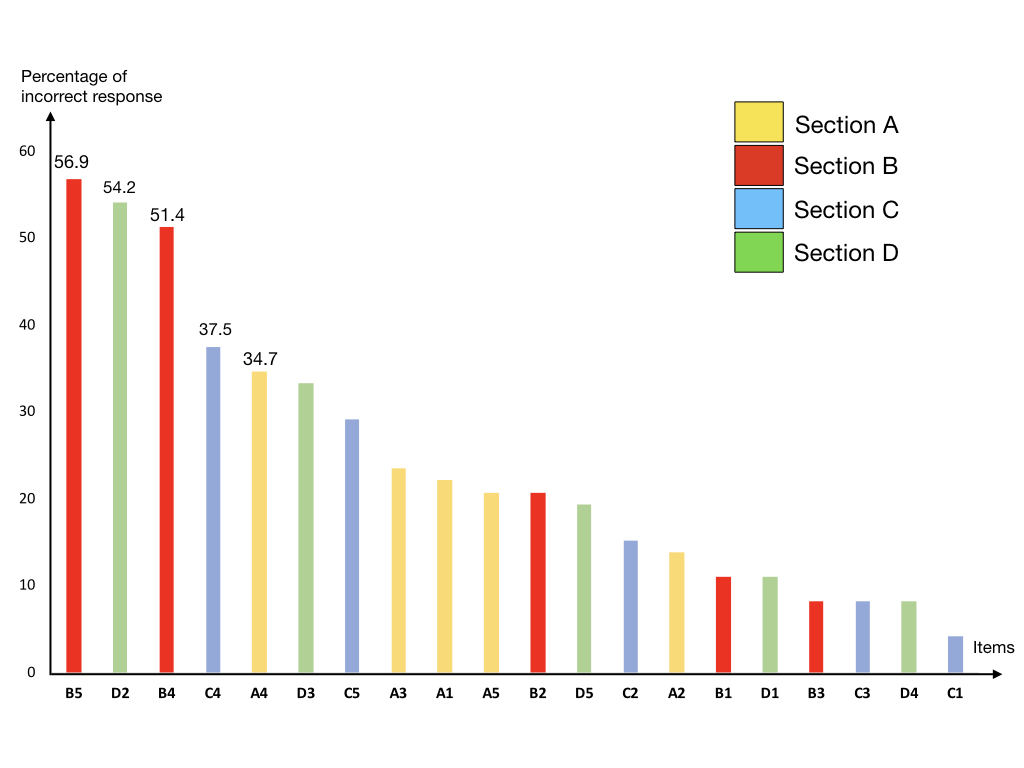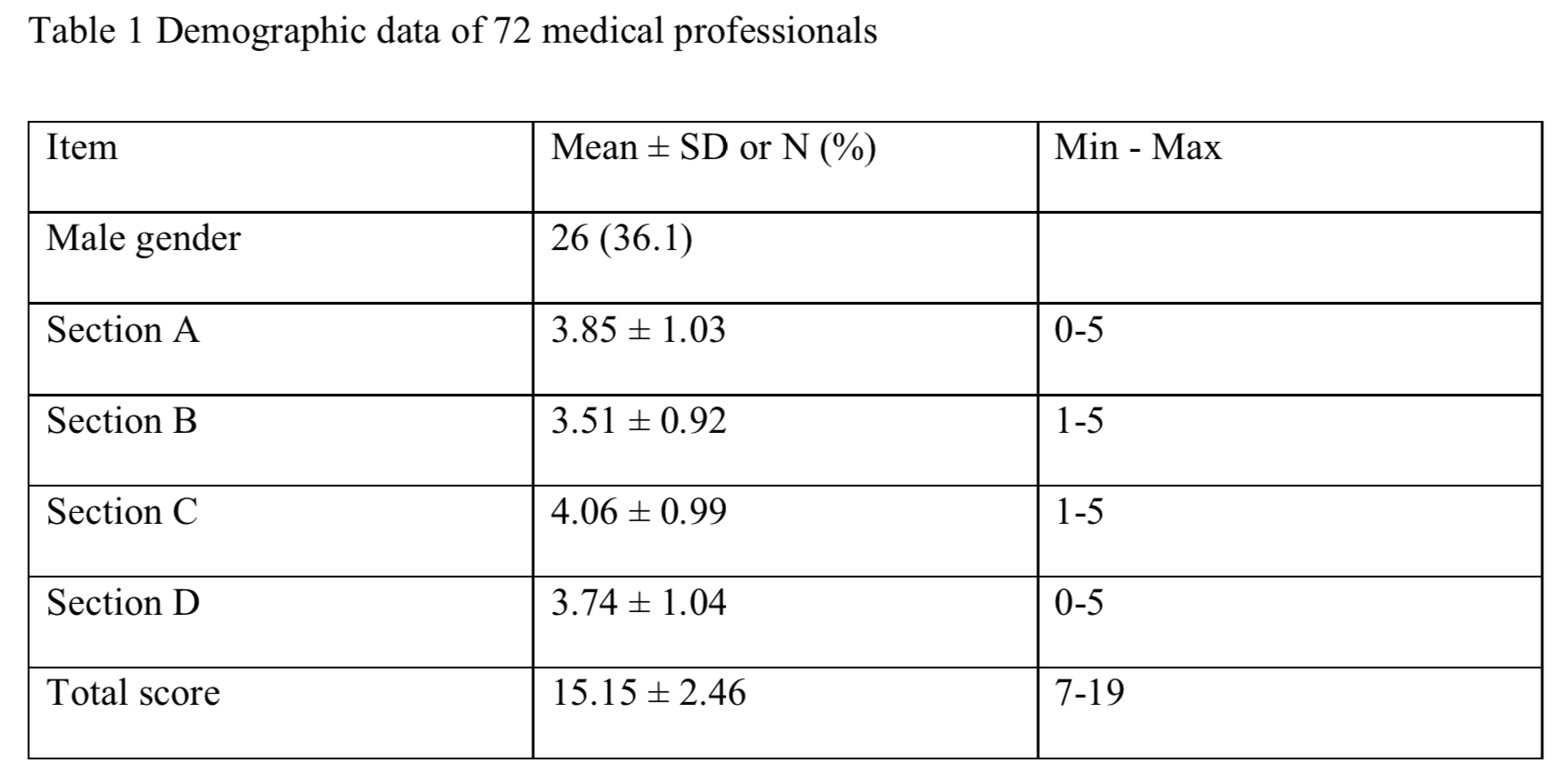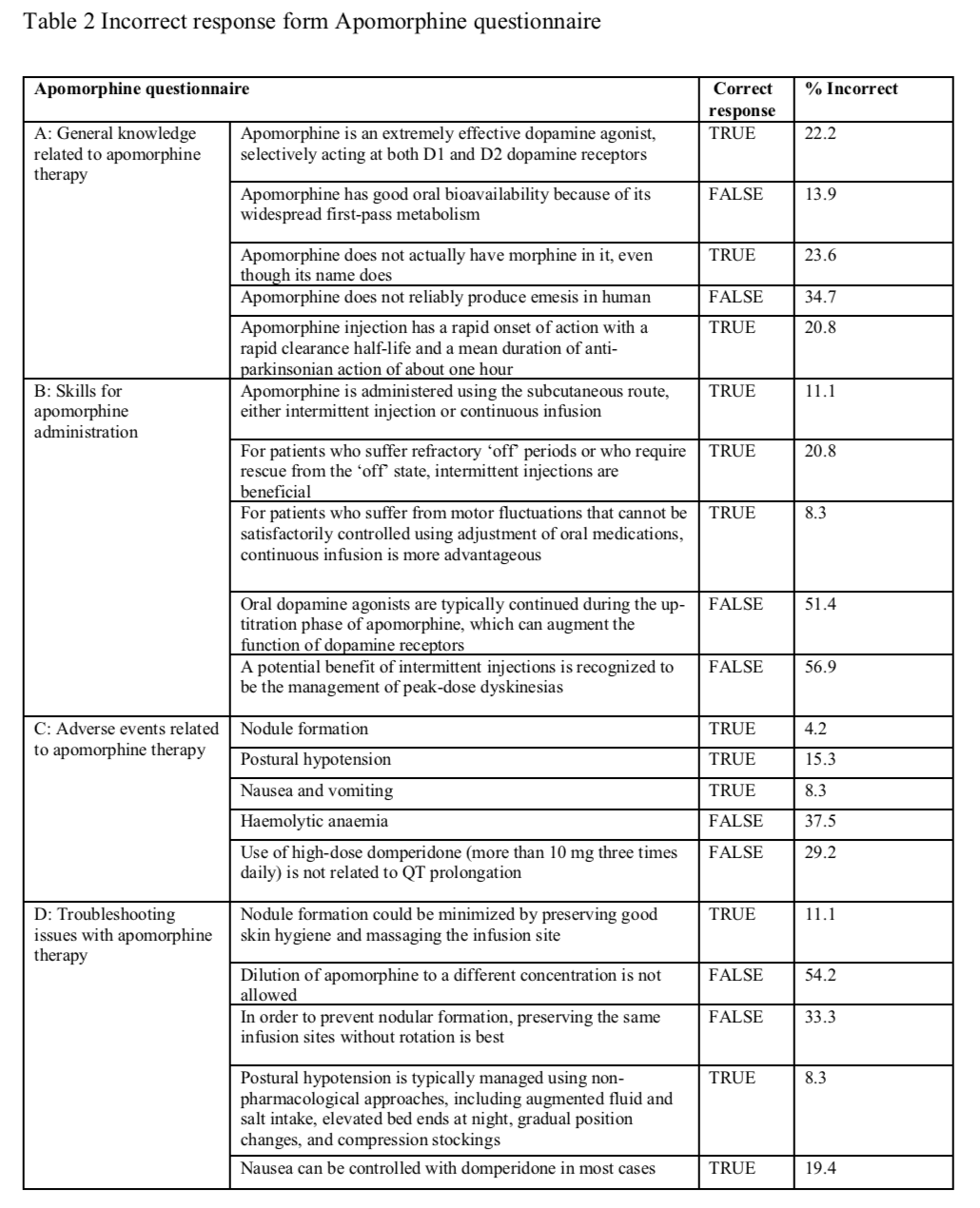Category: Education in Movement Disorders
Objective: To assess the level of understanding about, and identify knowledge gaps in, apomorphine therapy amongst Thai neurological medical professionals.
Background: Continuous subcutaneous apomorphine infusion may alleviate the motor fluctuations in Parkinson’s disease. However, the complexities around drug selection, route of administration, and device used are often barriers for neurologistsseeking to start this treatment approach. Therefore, robust knowledge of apomorphine therapy amongst medical professionals is vital to improve quality care for patients with symptom fluctuations.
Method: A total of 72 Thai medical professionals were enrolled in this cross-sectional study, comprising 26 neurologists, 39 neurological residents and 7 neurological nurses. All participants were given a validated questionnaire about apomorphine therapy knowledge covering general knowledge, skills, adverse events, and troubleshooting issues.
Results: Apparent misconceptions about apomorphine therapy were revealed amongst Thai medical professionals, with participants offering many incorrect responses across all domains. Mean (SD) total scores for general knowledge, skills, adverse events, and troubleshooting issues were 15.15 (SD 2.46), 3.85 (SD 1.03), 3.51 (SD 0.92), 4.06 (SD 0.99), and 3.74 (SD 1.04), respectively.This equates to correct responses across sections for 75.75% (total), 77% (general knowledge), 70.2% (skills), 81.2%(adverse events), and 74.8% (troubleshooting issues). The fivemost common misconceptionsconcerned:dyskinetiafrom intermittent apomorphine injection (Q-B5, 56.9% incorrect);apomorphine dilutions (Q-D2, 54.2% incorrect); continuation of previous oral dopamine agonists during titration periods (Q-B4, 51.4% incorrect); risk of haemolytic anaemia (Q-C4, 37.5% incorrect); and risk of apomorphine-induced emesis (Q-A4, 34.7%). There were no statistical differences in knowledge scores between groups of medical professionals.
Conclusion: This study was the first to objectively measure Thai neurological medical professionals’ knowledge about apomorphine therapy. Even though apomorphine administration requires special skills for optimal delivery, it remains an effective method to treat motor fluctuation in PD. Training medical professionals to be familiar with this therapy should enhance confidence amongst physicians to utilise this treatment; thus, improving patients’ care.
References: Katzenschlager R, et al. Apomorphine subcutaneous infusion in patients with Parkinson’s disease with persistent motor fluctuations (TOLEDO): a multicentre, double-blind, randomised, placebo-controlled trial. Lancet Neurol 2018; 17( 9): 749-759.
To cite this abstract in AMA style:
O. Phokaewvarangkul, K. Boonpang, N. Kantachadvanich, R. Bhidayasiri. What is holding back apomorphine therapy for Parkinson’s disease? Identifying knowledge gaps amongst Thai neurological medical professionals [abstract]. Mov Disord. 2020; 35 (suppl 1). https://www.mdsabstracts.org/abstract/what-is-holding-back-apomorphine-therapy-for-parkinsons-disease-identifying-knowledge-gaps-amongst-thai-neurological-medical-professionals/. Accessed February 3, 2026.« Back to MDS Virtual Congress 2020
MDS Abstracts - https://www.mdsabstracts.org/abstract/what-is-holding-back-apomorphine-therapy-for-parkinsons-disease-identifying-knowledge-gaps-amongst-thai-neurological-medical-professionals/



